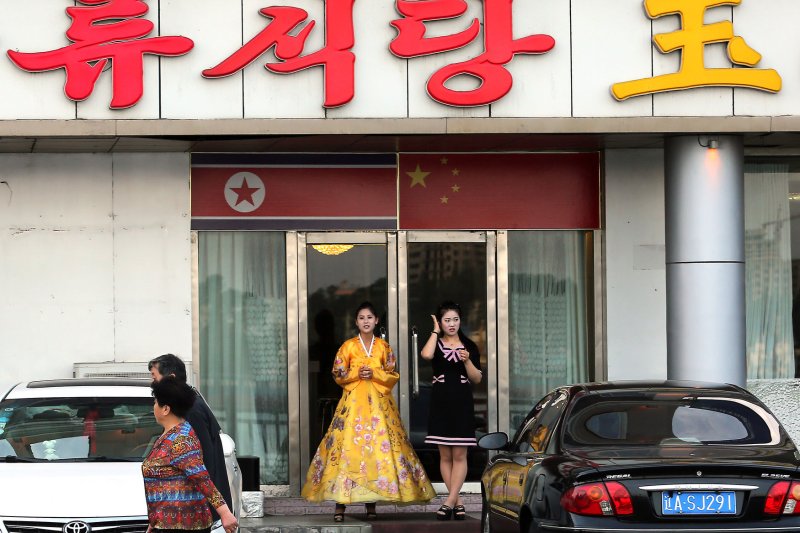A North Korean woman and hostess stand outside a North Korean restaurant waiting for customers in Dandong, China's largest border city with North Korea. A South Korean analyst said grassroots enterprises in North Korea have increased, and businesses are diversifying. Photo by Stephen Shaver/UPI |
License Photo
SEOUL, Dec. 21 (UPI) -- There are now more than 750 "gray markets" in North Korea and one million people now make up the country's consumer elite, a South Korean analyst said Tuesday.
Lim Eul-chul of the Institute for Far Eastern Studies at Kyungnam University said at a seminar for South Korean lawmakers grassroots enterprises in North Korea have increased, and businesses are diversifying.
"North Korean authorities also are involved in the markets," Lim said.
On average, a North Korean city, county or region has an average of two marketplaces, bringing the national total to 500. If alley vendors are included in the tally, the total is 750, Lim said.
In larger cities like Chongjin, near the China border, there are about 12,000 vendor stalls and one city in South Pyongan Province is home to a marketplace that is more than 1 mile across, the analyst said.
The North Korean regime is an active participant in the unofficial marketplaces that began developing after the collapse of the state's distribution system. Authorities enjoy a monopoly over the mobile phone market and related services, Lim said.
Other sought-after products in North Korean marketplaces include South Korea-made products that are smuggled into the country, as well as pizza and burgers.
Lim said the 7th Congress of the Workers' Party, to be held in May 2016, could mean landmark reforms that in the mid-term could lead to exploring possibilities of improving relations with South Korea and the United States.
South Korean President Park Geun-hye has often touted unification as an economically desirable "jackpot," and according to Seoul's National Assembly Budget Office, a unified Korea could lead to a 3.3-fold increase in the size of the Korean economy to become the world's 9th-largest, Yonhap reported.
The report, released in October, made those forecasts for the years between 2016 and 2060. In that span of time, GDP per capita would also rise to $79,000, according to Seoul.















